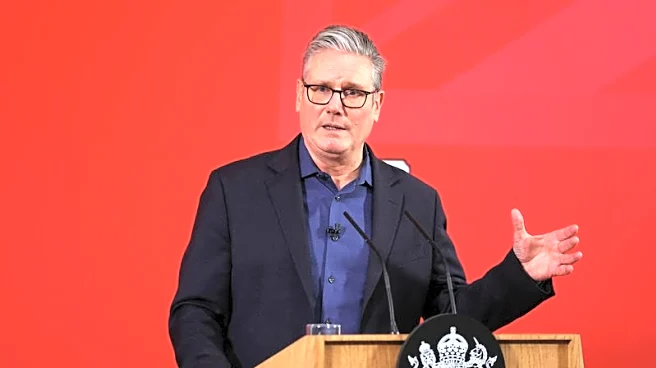What is the story about?
What's Happening?
At the New York Film Festival, a film featuring a controversial line, 'It’s like watching a slow motion train wreck,' has sparked significant debate among attendees. The film, which addresses themes related to the #MeToo movement, premiered on September 26, 2025, and is set to open in New York and Los Angeles on October 10, 2025, with a nationwide expansion on October 17. The line, delivered by actor Michael Stuhlbarg, has reframed the film's narrative, prompting discussions about its ambiguous storytelling and moral implications. Critics and viewers are divided, with some praising the film's refusal to offer clear judgments, while others express frustration over the lack of accountability.
Why It's Important?
The film's reception at the New York Film Festival highlights the growing influence of festival buzz on awards-season narratives and review headlines. The debate surrounding the film's ambiguous themes reflects broader societal discussions about accountability and forgiveness in the context of the #MeToo movement. The film's timing and thematic complexity could impact its awards prospects, as critics and audiences grapple with the balance between celebrating ambiguity and demanding clarity. This conversation underscores the evolving landscape of film criticism and the role of festivals in shaping public discourse.
What's Next?
As the film prepares for its theatrical release, the ongoing debate is likely to influence its reception and box office performance. The film's ambiguous narrative may continue to polarize audiences, potentially affecting its awards-season trajectory. Stakeholders, including critics, festival organizers, and audiences, will play a crucial role in shaping the film's legacy and its impact on future storytelling approaches within the industry.
Beyond the Headlines
The film's exploration of moral ambiguity and refusal to offer clear answers may prompt deeper reflections on the ethical responsibilities of filmmakers in addressing sensitive topics. This development could lead to broader discussions about the role of art in challenging societal norms and the importance of fostering dialogue around complex issues.

















